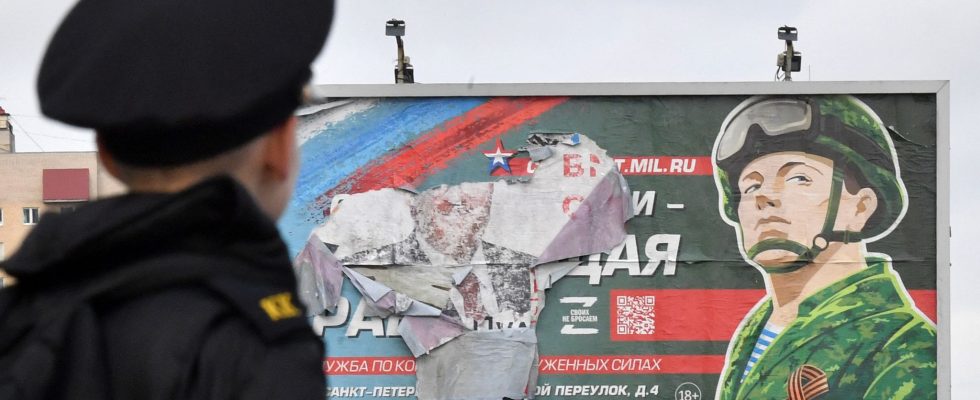Twenty-four hours to pass the law, and a few seconds to sign it. Since this Friday, April 14, in Russia, it is much more difficult for a reservist to avoid enlistment in Ukraine. After Parliament voted on Tuesday to overhaul the conditions for mobilizing reservists, Vladimir Putin made it official on Friday.
Now the government has the right to call up a reservist electronically, through a portal of Russian public services, or through a third party. Which changes everything. Until then, the authorities had to deliver the document by hand. A condition that allowed many refractory to escape mobilization, for example by no longer going to their official address.
Through this law, Moscow intends to put an end to the “brothel” – in the words of the Kremlin spokesman, Dmitry Peskov – which was generated within the administration by the announcement last September of the mobilization of 300,000 reservists. Because the law goes further than the remote delivery of the summons: it plans to prohibit recipients from leaving the country, and to prevent them, in the event of refusal to mobilize, from buying real estate or driving a car. . Also, it makes it more difficult for them to evade the duty imposed by the Kremlin, by requiring public bodies (tax service, universities, etc.) to transmit personal information on request.
No more mobilized, but more surveillance
Until that date, the government refused to adopt a strong method, for fear of seeing a general dispute rise in the country. This did not prevent nearly a million Russians from fleeing the country. But times are especially tough for the military, and the need for screaming men. Ukraine is preparing a large-scale counter-offensive which could “begin in May”, according to General Dominique Trinquand, questioned a few days ago by The Express.
And if the Kremlin affirms that there is no question, for the moment, of mobilizing more men than what the decree of September 2022 provides for, the new law tightens surveillance on citizens, in particular by facilitating the collection of their personal data. During the announcement of the mobilization of part of the reservists, the Minister of Defence, Sergei Shoigu, had moreover declared that Russia had “25 million reservists”. Among this huge contingent, there are many who are still reluctant to flee.
